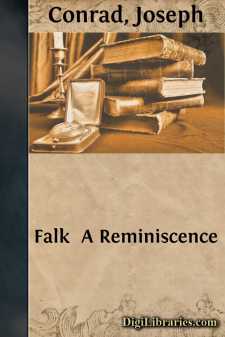Categories
- Antiques & Collectibles 13
- Architecture 36
- Art 48
- Bibles 22
- Biography & Autobiography 813
- Body, Mind & Spirit 141
- Business & Economics 28
- Children's Books 12
- Children's Fiction 9
- Computers 4
- Cooking 94
- Crafts & Hobbies 4
- Drama 346
- Education 46
- Family & Relationships 57
- Fiction 11826
- Games 19
- Gardening 17
- Health & Fitness 34
- History 1377
- House & Home 1
- Humor 147
- Juvenile Fiction 1873
- Juvenile Nonfiction 202
- Language Arts & Disciplines 88
- Law 16
- Literary Collections 686
- Literary Criticism 179
- Mathematics 13
- Medical 41
- Music 40
- Nature 179
- Non-Classifiable 1768
- Performing Arts 7
- Periodicals 1453
- Philosophy 64
- Photography 2
- Poetry 896
- Political Science 203
- Psychology 42
- Reference 154
- Religion 513
- Science 126
- Self-Help 83
- Social Science 81
- Sports & Recreation 34
- Study Aids 3
- Technology & Engineering 59
- Transportation 23
- Travel 463
- True Crime 29
The End of the Tether
by: Joseph Conrad
Description:
Excerpt
I
For a long time after the course of the steamer Sofala had been altered for the land, the low swampy coast had retained its appearance of a mere smudge of darkness beyond a belt of glitter. The sunrays seemed to fall violently upon the calm sea—seemed to shatter themselves upon an adamantine surface into sparkling dust, into a dazzling vapor of light that blinded the eye and wearied the brain with its unsteady brightness.
Captain Whalley did not look at it. When his Serang, approaching the roomy cane arm-chair which he filled capably, had informed him in a low voice that the course was to be altered, he had risen at once and had remained on his feet, face forward, while the head of his ship swung through a quarter of a circle. He had not uttered a single word, not even the word to steady the helm. It was the Serang, an elderly, alert, little Malay, with a very dark skin, who murmured the order to the helmsman. And then slowly Captain Whalley sat down again in the arm-chair on the bridge and fixed his eyes on the deck between his feet.
He could not hope to see anything new upon this lane of the sea. He had been on these coasts for the last three years. From Low Cape to Malantan the distance was fifty miles, six hours' steaming for the old ship with the tide, or seven against. Then you steered straight for the land, and by-and-by three palms would appear on the sky, tall and slim, and with their disheveled heads in a bunch, as if in confidential criticism of the dark mangroves. The Sofala would be headed towards the somber strip of the coast, which at a given moment, as the ship closed with it obliquely, would show several clean shining fractures—the brimful estuary of a river. Then on through a brown liquid, three parts water and one part black earth, on and on between the low shores, three parts black earth and one part brackish water, the Sofala would plow her way up-stream, as she had done once every month for these seven years or more, long before he was aware of her existence, long before he had ever thought of having anything to do with her and her invariable voyages. The old ship ought to have known the road better than her men, who had not been kept so long at it without a change; better than the faithful Serang, whom he had brought over from his last ship to keep the captain's watch; better than he himself, who had been her captain for the last three years only. She could always be depended upon to make her courses. Her compasses were never out. She was no trouble at all to take about, as if her great age had given her knowledge, wisdom, and steadiness. She made her landfalls to a degree of the bearing, and almost to a minute of her allowed time. At any moment, as he sat on the bridge without looking up, or lay sleepless in his bed, simply by reckoning the days and the hours he could tell where he was—the precise spot of the beat. He knew it well too, this monotonous huckster's round, up and down the Straits; he knew its order and its sights and its people....












